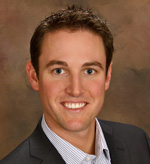Fed Says It Won’t Raise Interest Rates for Now
Fed Says It Won’t Raise Interest Rates for Now
The Federal Reserve announced in mid-September that it will postpone increasing interest rates for now, opting to keep rates near zero awhile longer. The Fed’s chairwoman Janet L. Yellen said, however, that interest rates are still expected to rise before the end of 2015.
The Fed’s near-zero interest rates began in 2008 during a nationwide recession. The Great Recession came after the housing bubble burst in mid-2007, which caused a sharp increase in U.S. unemployment and prompted government response in the form of stimulus plans.
Yellen stated in a news conference that “The recovery from the Great Recession has advanced sufficiently far and domestic spending has been sufficiently robust that an argument can be made for a rise in interest rates at this time.”
However, she cited uncertainties in the global market, such as China’s weakened economy, as sound reason for the central bank to delay raising interest rates until new data secures claims of continued economic growth.
The Long Wait May Yet End Soon
The Federal Reserve has decided against raising interest rates several times in recent years. In 2012, the Fed announced interest rates would remain near zero until the unemployment rate fell below 6.5%, a standard which was met in April 2014. Officials later indicated rates would rise in June of this year.
Despite the continued longevity of the federal rate of 0-0.25%, signs indicate rates might yet rise before the end of the year. Jeffrey Lacker, president of the Federal Reserve’s Atlanta regional bank, voted for an increase at the September meeting in dissent of the majority vote. In economic projections released separately by the Fed, 13 out of 17 officials on the Federal Open Market
Committee expressed intentions to raise the benchmark rate before the 2015 session concludes.
Predictions state that unemployment will continue to fall as the economy grows, eventually raising inflation.
The Fed’s policymaking committee plans to meet in October and December. The committee could vote to raise rates at either meeting. Though Yellen’s next scheduled press conference does not come until December, she said that if the Fed agrees to raise short-term rates at the October meeting, she would brief the press.
Slow, but Steady Gains Expected in Coming Years
The 17 officials on the Federal Open Market Committee show a cautious optimism amidst economic growth at home and troubles abroad. Policymakers downgraded forecasts for GDP growth in 2016 and 2017, but their median projection estimates the American economy will grow by 2.1% this year, a faster rate than previously predicted. Unemployment is also projected to stabilize at 4.8 percent by next year.
Some Federal Reserve officials argue that higher inflation will follow a tighter labor market and that wages will rise. Officials forecast that the unemployment rate will drop below 5% by the end of 2015, which would mark a new 7 year low. Yellen warned, however, that the real rate of inflation will not match what the unemployment rate suggests due to the number of people not included in unemployment estimates, such as underemployed part-timers, temporary workers, and those who have ceased job-seeking. As market conditions improve, these people are likely to reenter the job market seeking full time work.
What Rising Rates Mean for You
Increased rates by the Federal Reserve eventually convert to increased rates for mortgages, car loans, personal loans, and credit cards. When the Fed does raise rates, central banks in other developed countries are likely to follow America’s lead by raising their interest rates, too.
Given the slow pace of economic growth since the recession, the Fed plans to raise rates slowly and steadily as compared to past practice. Officials plan for the benchmark rate to rise to 2.6 percent over the next two years. When the rates actually begin to rise is yet to be determined.










